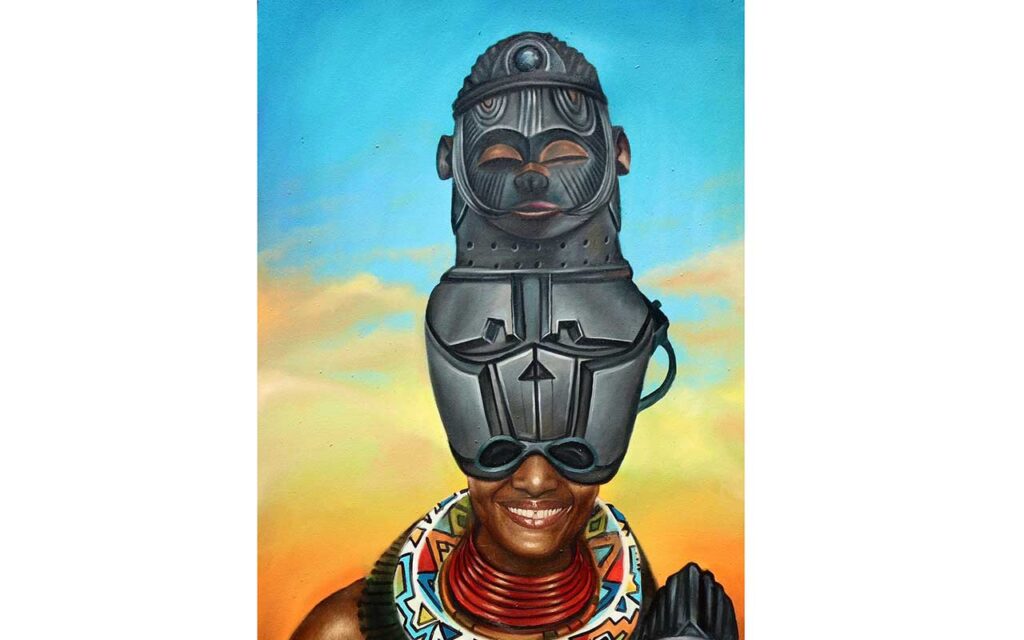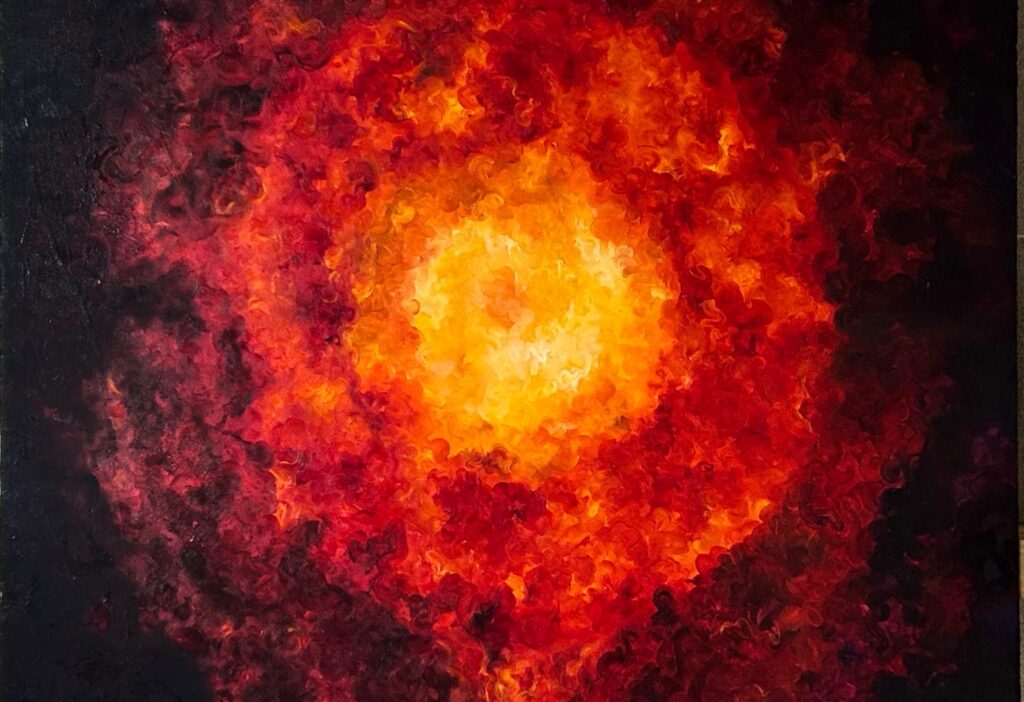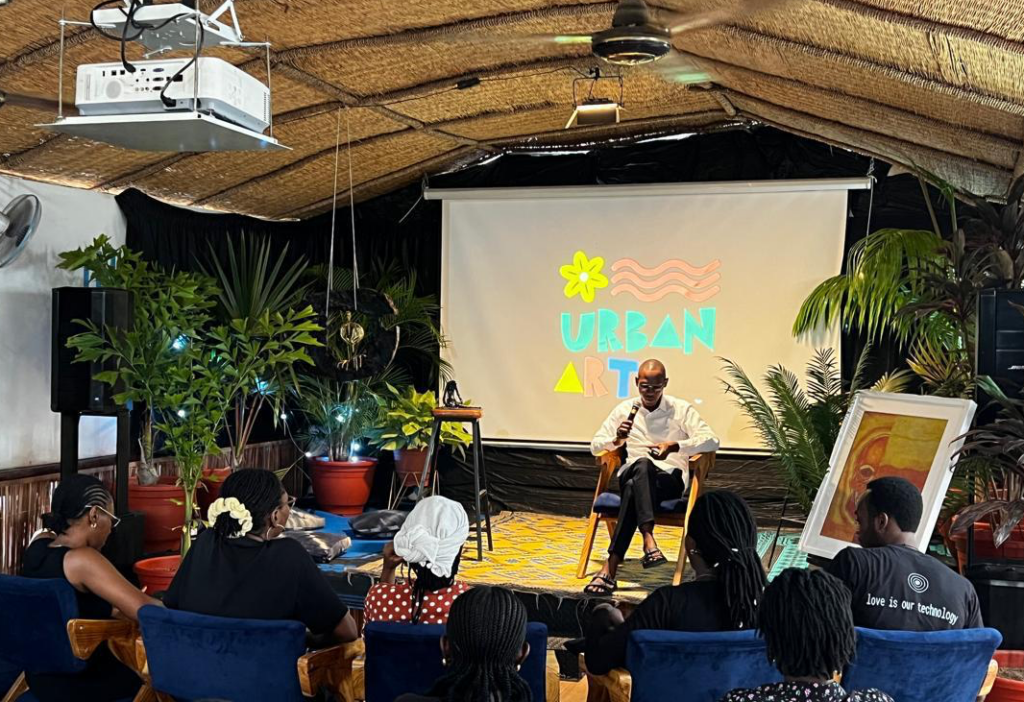
This bleeding would only come when people are willing to stand against age-long stereotypes, idiosyncrasies and ethos obstructing their worldview as ethnic groups. Or even come when the people are prepared to shun vendetta, ethnocentrism and other antisocial behaviours.
These defects form the main theme of Yoruba Romance, staged Terra Kulture, Lagos. Written by Tyrone Terrence, and adapted from A Marriage Proposal, a 17th century play by Russian playwright, Anton Chekhov, the play, a hilarious comedy denigrates deep-seated prejudices about inter-ethnic relations in Nigeria.
With the plots place among Ladoja (Julius Obende), Chief Chibuzor (Stanley Okeke) and Nneka (Uchechika Elumelu), the play tells the story of how Ladoja, an affluent 49-year-old farmer wants to propose marriage to Nneka, Chief Chibuzor’s daughter.
Ladoja, a Yoruba man, expresses his intent to Chibuzor, who is not only his neighbour, but has a long outstanding quarrel with his family.
Chibuzor, a rich Igbo businessman, has been living with his 36-year-old daughter, as a single parent, since the wife passed on 30 years ago. Ladoja’s desire brings joy Chibuzor. Not minding their differences, he arranges for the two to meet in his house.
Ladoja, lacking the tact to pass on his intention to Nneka, begins to allude to Nneka his family’s wealth and escapade, thereby, unearthing the long-buried land dispute between the two families.
This inept rekindles an old wound that angers Chibuzor and his daughter, making father and daughter to chase Nneka’s suitor away. When Ladoja leaves, Chibuzor then lets Nneka know why Ladoja visited.
Without mincing words, Nneka asks her father to immediately bring back Ladoja for her, reminding her father that since her mother passed on no man has approached her for marriage. She notes that she is not getting any younger and needs a husband. She accuses her father of finding fault with all the suitors she brings home, saying he would either reject them on religious grounds, ethnicity or cultural differences.
Surprised at Nneka’s sudden fondness for a Yoruba man, a fondness he describes as Yoruba romance, Chibuzor, in spite of the evening rain, goes after Ladoja to pacify his only child and daughter. The two strange lovers, advanced in age, begin to entertain fear that they might end up not marry if they do not overlook their tribal differences.
Directed by Austine Onuoha, Yoruba Romance is a reflection of the Nigerian story. The play upholds that for a country such as, Nigeria with a multi-ethnic culture to forge ahead as a nation, the various ethnic groups must learn to tolerate one another, as no ethnic group can be said to be flawless.
Each has its weaknesses and strengths, and working together will bring out the best out of everyone. It also calls everyone, irrespective of culture or religion or political leanings to rise up to his/her patriotic duties and to stop judging others from their ethnic prism.
The play raises issue of settlement and ethnic nationalism, bringing to light the question of who owns the land and how long must you live in a given community to be identified and accepted as an indigene of that community, especially when the said person has lived in a place for long or spent the better part of his/her life there. It also hits hard at religious bigots, depicting how they often project one religion against the other.
In a hilarious, but subtle manner, the play tells how religion, which ought to unite the people and instill love has become the major cause of division in most communities.
The themes are topical and could help calm nerves, especially as some religious bigots have made some parts of the country a no go area for non-adherents of their faith.
Another pressing issue the play brings out, is late marriage. Though the play projects the old African belief that a man or woman must be married to be accorded due respect in the society, it however, fails to show how changing society is beginning to make the issue a thing of the past, as there are many unmarried young people occupying respected positions in the society.
As an experimentalist, Onuoha presented the play at the open space of Terra Kulture. This unconventional space enabled the characters to mingle with the audience. Here, the audience feels the soul of the play, as the character sometimes present their lines in a call-and-response form.







